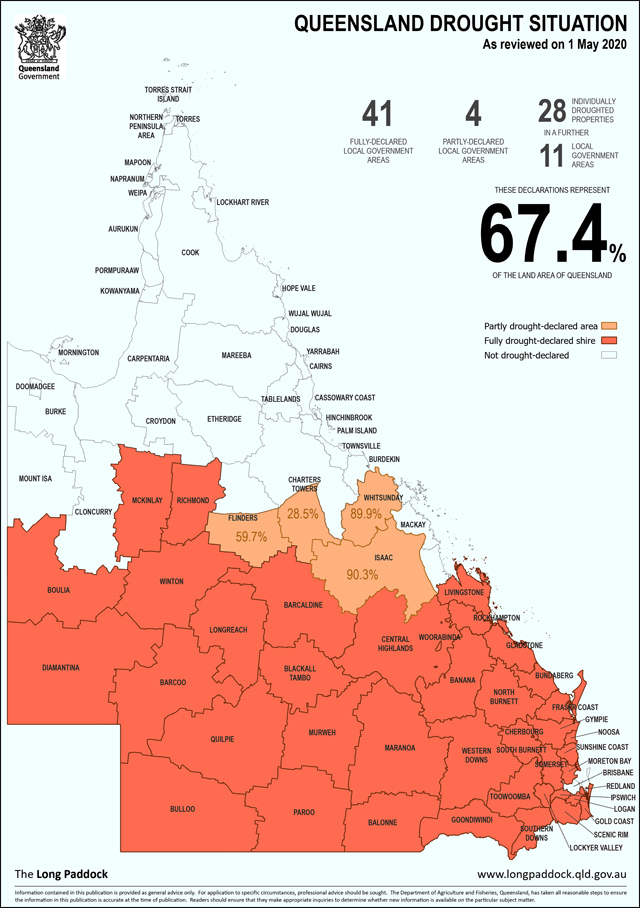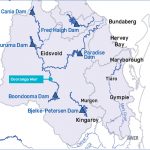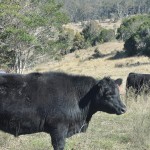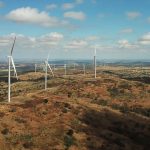
May 22, 2020
More than 67 per cent of Queensland remains in drought after a disappointing start to the wet season.
Agriculture Minister Mark Furner said Local Drought Committees (LDCs) had not recommended any changes to drought declarations.
“LDCs meet at least once a year, generally at the end of the summer rainfall period, to discuss the impact of seasonal conditions and make recommendations about the drought status of their area,” Mr Furner said.
“They found that while rainfall received during February-March was welcome, there was a lack of follow-up rainfall and the benefits were limited.
“There has been limited pasture growth, failed winter and summer crops in many areas, as well as significant concerns about stock, irrigation and rural domestic water supplies moving forward into our normally dry winter period.”
Mr Furner said that the lack of rain combined with well above-average temperatures in 2019 and early this year means there has been a serious impact on Queensland’s agricultural production.
“One bright note is that the seasonal climate outlook for winter – and potentially into spring – is looking more optimistic, especially compared to this time last year,” he said.
“This reflects changing sea surface temperatures in the Indian and Pacific oceans which may bring average, or possibly above average, rainfall to some areas over coming months.”
* * *
Mr Furner also announced that planned reforms to drought programs scheduled for this year would be delayed due to the impact of COVID-19 on producers.
“With so much of our focus on COVID-19 while having to maintain high levels of ongoing drought support, we are postponing the implementation of Drought Program Reforms until July 1, 2021,” Mr Furner said.
“These measures were based on agreed recommendations of the Independent Panel Drought Program Review and will improve drought and climate risk preparedness for future droughts and better align Queensland with the National Drought Agreement.
“I’d like to remind any producer who is experiencing difficult conditions in any council area that is not drought declared, that they can apply for an Individually Droughted Property (IDP) declaration. This gives them the same access to our drought assistance as an area declaration.”
Likewise, producers in any drought-declared area who believe their property conditions were improved enough to allow restocking could have their property individually revoked.
“If their drought declaration is revoked, producers can access returning from agistment and restocking freight subsidies through the Drought Relief Assistance Scheme (DRAS) for up to two years after the end of the drought declaration,” he said.
“However, to be eligible for these subsidies producers must ensure their property’s drought declaration is first revoked before introducing any livestock.”























